第159章
Indeed this latter language is a strange anomaly, so that upon the whole it is less difficult to say what it is not, than what it is.It abounds with Sanskrit words to such a degree that its surface seems strewn with them.Yet would it be wrong to term it a Sanskrit dialect, for in the collocation of these words the Tartar form is most decidedly observable.Aconsiderable proportion of Tartar words is likewise to be found in this language, though perhaps not in equal number to the terms derived from the Sanskrit.Of these Tartar etymons Ishall at present content myself with citing one, though, if necessary, it were easy to adduce hundreds.This word is JAUNA, or as it is pronounced, KHAUNA, a word in constant use amongst the Basques, and which is the KHAN of the Mongols and Mandchous, and of the same signification - Lord.
Having closely examined the subject in all its various bearings, and having weighed what is to be said on one side against what is to be advanced on the other, I am inclined to rank the Basque rather amongst the Tartar than the Sanskrit dialects.Whoever should have an opportunity of comparing the enunciation of the Basques and Tartars would, from that alone, even if he understood them not, come to the conclusion that their respective languages were formed on the same principles.
In both occur periods seemingly interminable, during which the voice gradually ascends to a climax, and then gradually sinks down.
I have spoken of the surprising number of Sanskrit words contained in the Basque language, specimens of some of which will be found below.It is remarkable enough, that in the greater part of the derivatives from the Sanskrit the Basque has dropped the initial consonant, so that the word commences with a vowel.The Basque, indeed, may be said to be almost a vowel language; the number of consonants employed being comparatively few: perhaps eight words out of ten commence and terminate with a vowel, owing to which it is a language to the highest degree soft and melodious, far excelling in this respect any other language in Europe, not even excepting the Italian.
Here follow a few specimens of Basque words with the Sanskrit roots in juxtaposition:-BASQUE.SANSKRIT.
Ardoa Sandhana WINE.
Arratsa Ratri NIGHT.
Beguia Akshi EYE.
Choria Chiria BIRD.
ChacurraCucura DOG.
Erreguina Rani QUEEN.
Icusi Iksha TO SEE.
Iru Treya THREE.
Jan (Khan) Khana TO EAT.
UriaPuri CITY.
Urruti Dura FAR.
Such is the tongue in which I brought out Saint Luke's Gospel at Madrid.The translation I procured originally from a Basque physician of the name of Oteiza.Previous to being sent to the press, the version had lain nearly two years in my possession, during which time, and particularly during my travels, I lost no opportunity of submitting it to the inspection of those who were considered competent scholars in the Euscarra.It did not entirely please me; but it was in vain to seek for a better translation.
In my early youth I had obtained a slight acquaintance with the Euscarra, as it exists in books.This acquaintance Iconsiderably increased during my stay in Spain; and by occasionally mingling with Basques, was enabled to understand the spoken language to a certain extent, and even to speak it, but always with considerable hesitation; for to speak Basque, even tolerably, it is necessary to have lived in the country from a very early period.So great are the difficulties attending it, and so strange are its peculiarities, that it is very rare to find a foreigner possessed of any considerable skill in the oral language, and the Spaniards consider the obstacles so formidable that they have a proverb to the effect that Satan once lived seven years in Biscay, and then departed, finding himself unable either to understand or to make himself understood.
There are few inducements to the study of this language.
In the first place, the acquisition of it is by no means necessary even to those who reside in the countries where it is spoken; the Spanish being generally understood throughout the Basque provinces pertaining to Spain, and the French in those pertaining to France.
In the second place, neither dialect is in possession of any peculiar literature capable of repaying the toil of the student.There are various books extant both in French and Spanish Basque, but these consist entirely of Popish devotion, and are for the most part translations.